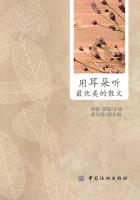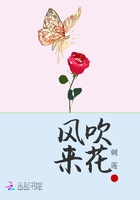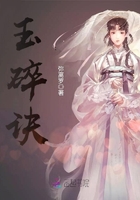It was a breathless California Indian summer day. Lightfleeces of cloud drifted in the azure sky, but to the westheavy cloud banks threatened with rain. A bee dronedlazily by. From farther thickets came the calls of quail, andfrom the fields the songs of meadow larks. And obliviousto it all slept Ross Shanklin—Ross Shanklin, the trampand outcast, ex-convict 4379, the bitter and unbreakableone who had defied all keepers and survived all brutalities.
Texas-born, of the old pioneer stock that was alwaystough and stubborn, he had been unfortunate. Atseventeen years of age he had been apprehended forhorse-stealing. Also, he had been convicted of stealingseven horses which he had not stolen, and he had beensentenced to fourteen years’ imprisonment. This wassevere under any circumstances, but with him it hadbeen especially severe, because there had been no priorconvictions against him. The sentiment of the people whobelieved him guilty had been that two years was adequatepunishment for the youth, but the county attorney, paidaccording to the convictions he secured, had made sevencharges against him and earned seven fees. Which goes toshow that the county attorney valued twelve years of RossShanklin’s life at less than a few dollars.
Young Ross Shanklin had toiled in hell; he had escaped,more than once; and he had been caught and sent backto toil in other and various hells. He had been triced upand lashed till he fainted, had been revived and lashedagain. He had been in the dungeon ninety days at a time.
He had experienced the torment of the straightjacket. Heknew what the humming bird was. He had been farmedout as a chattel by the state to the contractors. He hadbeen trailed through swamps by blood hounds. Twice hehad been shot. For six years on end he had cut a cord anda half of wood each day in a convict lumber camp. Sick orwell, he had cut that cord and a half or paid for it under awhip-lash knotted and pickled.
And Ross Shanklin had not sweetened under thetreatment. He had sneered, and cursed, and defied. Hehad seen convicts, after the guards had manhandled them,crippled in body for life, or left to maunder in mind to theend of their days. He had seen convicts, even his own cellmate,goaded to murder by their keepers, go to the gallowscursing God. He had been in a break in which eleven ofhis kind were shot down. He had been through a mutiny,where, in the prison yard, with gatling guns trained uponthem, three hundred convicts had been disciplined withpick-handles wielded by brawny guards.
He had known every infamy of human cruelty, andthrough it all he had never been broken. He had resentedand fought to the last, until, embittered and bestial, theday came when he was discharged. Five dollars were givenhim in payment for the years of his labour and the flowerof his manhood. And he had worked little in the yearsthat followed. Work he hated and despised. He tramped,begged and stole, lied or threatened as the case mightwarrant, and drank to besottedness whenever he got thechance.
The little girl was looking at him when he awoke. Likea wild animal, all of him was awake the instant he openedhis eyes. The first he saw was the parasol, strangelyobtruded between him and the sky. He did not start normove, though his whole body seemed slightly to tense.
His eyes followed down the parasol handle to the tightclutchedlittle fingers, and along the arm to the child’sface. Straight and unblinking, he looked into her eyes, andshe, returning the look, was chilled and frightened by hisglittering eyes, cold and harsh, withal bloodshot, and withno hint in them of the warm humanness she had beenaccustomed to see and feel in human eyes. They were thetrue prison eyes—the eyes of a man who had learned totalk little, who had forgotten almost how to talk.
“Hello,” he said finally, making no effort to change hisposition. “What game are you up to?”
His voice was gruff and husky, and at first it had beenharsh; but it had softened queerly in a feeble attempt atforgotten kindliness.
“How do you do?” she said. “I’m not playing. The sun was onyour face, and mamma says one oughtn’t to sleep in the sun.”
The sweet clearness of her child’s voice was pleasantto him, and he wondered why he had never noticed it inchildren’s voices before. He sat up slowly and stared at her.
He felt that he ought to say something, but speech withhim was a reluctant thing.
“I hope you slept well,” she said gravely.
“I sure did,” he answered, never taking his eyes from her,amazed at the fairness and delicacy of her. “How long wasyou holdin’ that contraption up over me?”
“O-oh,” she debated with herself, “a long, long time. Ithought you would never wake up.”
“And I thought you was a fairy when I first seen you.”
He felt elated at his contribution to the conversation.
“No, not a fairy,” she smiled.
He thrilled in a strange, numb way at the immaculatewhiteness of her small even teeth.
“I was just the good Samaritan,” she added.
“I reckon I never heard of that party.”
He was cudgelling his brains to keep the conversationgoing. Never having been at close quarters with a childsince he was man-grown, he found it difficult.
“What a funny man not to know about the goodSamaritan. Don’t you remember? A certain man went downto Jericho—”
“I reckon I’ve been there,” he interrupted.
“I knew you were a traveller!” she cried, clapping herhands. “Maybe you saw the exact spot.”
“What spot?”
“Why, where he fell among thieves and was left halfdead. And then the good Samaritan went to him, andbound up his wounds, and poured in oil and wine—wasthat olive oil, do you think?”
He shook his head slowly.
“I reckon you got me there. Olive oil is something thedagoes cooks with. I never heard of it for busted heads.”
She considered his statement for a moment.
“Well,” she announced, “we use olive oil in our cooking,so we must be dagoes. I never knew what they werebefore. I thought it was slang.”















